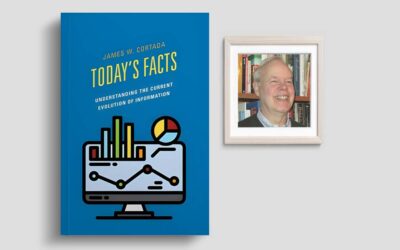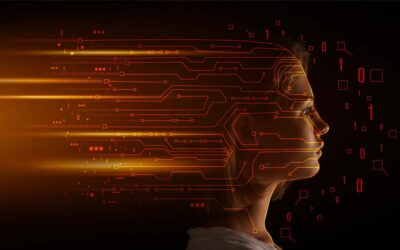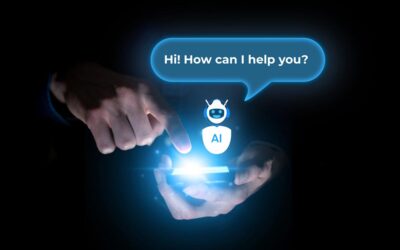Summer Reading Recommendations: Generative AI and the Next Generation of Libraries
Lauren Hays
I have shared summer reading recommendations for the past couple of years, and I want to do that again this year. The books I selected are ones I have recently read or will be reading this summer
1. The Alignment Problem by Brian Christian
“The Alignment Problem offers an unflinching reckoning with humanity’s biases and blind spots, our own unstated assumptions and often contradictory goals. A dazzlingly interdisciplinary work, it takes a hard look not only at our technology but at our culture―and finds a story by turns harrowing and hopeful.”
If you want to understand many of the issues surrounding generative AI, this book is for you. I read it slowly to digest what it was saying and to think about how the issues apply in my everyday use of AI
2. Verified: How to Think Straight, Get Duped Less, and Make Better Decisions about What to Believe Online by Mike Caulfield and Sam Wineburg
“Building on techniques like SIFT and lateral reading, Verified will help students and anyone else looking to get a handle on the internet’s endless flood of information through quick, practical, and accessible steps.”
This book just arrived, but it is on my reading list, and I am excited to dive into it I appreciate Caulfield’s SIFT method and the reviews for this book have been very good
3. The Mysterious Affair at Styles by Agatha Christie
I read this book last summer and loved it. It was admittedly my first Agatha Christie novel, and even though it is difficult for me to find time to read novels these days, I will make time to read another one this summer
4. Library 2035: Imagining the Next Generation of Libraries edited by Sandra Hirsch
“Building on the success and impact of Library 2020: Today’s Leading Visionaries Describe Tomorrow’s Library by Joseph Janes, Library 2035: Imagining the Next Generation of Libraries updates, expands upon, and broadens the discussions on the future of libraries and the ways in which they transform information services to best serve their communities.”
I have not read this book yet, but it is on my summer reading list. I hope some of you will join me in reading it!
5. Co-Intelligence: Living and Working with AI by Ethan Mollick
“In Co-Intelligence, Mollick urges us to engage with AI as co-worker, co-teacher, and coach. He assesses its profound impact on business and education, using dozens of real-time examples of AI in action. Co-Intelligence shows what it means to think and work together with smart machines, and why it’s imperative that we master that skill.”
I have been reading Ethan Mollick’s SubStack for a while and was excited to see this book. His writing has influenced my use of generative AI, and I encourage anyone who wants new ideas for how to engage with AI to read his work
Lauren Hays
Dr. Lauren Hays is an Assistant Professor of Instructional Technology at the University of Central Missouri, and a frequent presenter and interviewer on topics related to libraries and librarianship. Please read Lauren’s other posts relevant to special librarians. Take a look at Lucidea’s powerful integrated library systems, SydneyEnterprise, and GeniePlus, used daily by innovative special librarians in libraries of all types, sizes and budgets.
Never miss another post. Subscribe today!
Similar Posts
The Importance of Professional Networking: Tips for Special Librarians
For many special librarians, the idea of professional networking can feel daunting, especially for those who thrive in quiet, research-driven environments. Lauren Hays shares her journey from reluctant networker to engaged community member, offering practical tips to help you build authentic professional relationships that benefit both you and your field.
Interview with the Author: Jim Cortada on Today’s Facts and the Evolution of Information
Dr. James Cortada, historian and senior research fellow at the Charles Babbage Institute, explores the history of information in his forthcoming book. By examining how information has been created, organized, and used over time, Cortada reveals patterns that continue to shape modern librarianship and knowledge management.
The Complicated Feelings Librarians May Have About AI
GenAI will affect how we do our work and the type(s) of work we engage in. In navigating the transformative potential of GenAI, we should engage in reflective practice that centers on our core professional values.
Recommended AI Literacy Frameworks for Special Librarians
These frameworks provide insights and approaches to help you determine the best ways to address build and promote AI literacy in your specific context.




Leave a Comment
Comments are reviewed and must adhere to our comments policy.
0 Comments